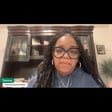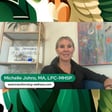
Episode Thirteen: Shattering the Silence on Domestic Abuse
In honor of Mother's Day, this special episode takes a personal turn as Romona Jackson, founding president and CEO of the Women's Advocacy Center, discusses the often stigmatized topic of domestic abuse. Despite the empowerment of women in modern society, the blame and shame surrounding domestic violence persist. Romona sheds light on the far-reaching impact of domestic abuse, which extends beyond the household and affects entire communities.
This episode explores the origins of the Women's Advocacy Center, the reasons behind the lingering stigma, and the critical intersections between domestic abuse, mental health, and substance abuse.
Don't miss Romona's insights on an upcoming forum that aims to raise awareness and provide support for survivors.



















